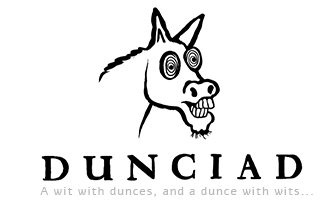
I’m back. A few jobs done but I’m not in a mood to draw. Having one of those: “what’s the point” days.
I know I moan too much about blogging — though it’s not the activity as much as the lack of feedback that gets to me — but it’s useful as a place to jot down ideas, particularly those that aren’t particularly well-formed.
One of my constant preoccupations is the notion of being “right”. It strikes me that we’re no longer engaged in a battle for the truth but a battle for our version of the truth. Perhaps that’s a shallow reading. Others have certainly said it before. Yet recently I’ve found myself standing back from both sides and watching the arguments they make. Coronavirus, for example, sits there impassive as a threat to our kind but doing all manner of harm. How should we read it? To some, it’s harming the economy more than it is people. To others, it’s the people that matter more than the economy. Both sides are right in their way but both sides wrong because I’m not sure there is an answer. But in a sense, both sides already know this. Neither really wants to win the debate. They just want to win the battle for the world they prefer.
This gets us into murky waters quite quickly since the ultimate expression of this “winning the future world” idea would be a world defined by some ethnicity. Nationalism in the UK and certainly the US is about a white identity struggling to remain apart from some great Other. They often use some argument based around Nature – that Nature makes us prefer people like ourselves – whilst others simply point out that these things are cultural, generally defined by traditions rather than nature, and, anyway, we have the freedom to choose to live differently should we wish. Nature can be whatever we want it to be so long as we have the power to choose.
Is there a truth behind all of this? An answer we’re seeking? Probably not. It’s all about preference. Do you like or dislike living in a multicultural society? Everybody has their own answer yet it’s an argument that’s becomes irrelevant at some point. One of the great things I took away from reading Liu Cixin’s brilliant Three Body trilogy a few years ago was how much we don’t and can’t have a say in these huge cultural shifts. It’s like a single cell in your body deciding if you are going to turn left or right. These decisions are really made by the organic machine that comprises your entire body. A slightly dodgy knee might make you prefer one way to the other and the same is true of cultures that move independently of the individuals that comprise them. I suppose it’s close to Douglas Adam’s notion of the Earth as a giant computer, which is an analogy I’ve always loved. It’s the hivemind, an intelligence that emerges from any suitably complex system. It’s the internet, made up of all the discrete intelligent cells, but which might display some intelligence of its own. It’s the Game of Life played out on an infinite canvas filled with 1s and 0s. Simple rules create all these patterns moving around and, at some stage, they might easily develop something we would recognise as intelligence.
Culture moves forward then, according to decisions that aren’t expressed by the individuals that comprise that culture, but by the entire collection working as a single entity. It’s quite liberating to think like that. These battles for ideas are meaningless because they’ll eventually be lost in the maelstrom. Cultural identity (and the decisions that culture makes) works above us, almost as if independent from us. These silly squabbles of left vs the right don’t amount to much at all when seen from the perspective of millennia. These things will happen or not happen. We will really have very little say in the matter.


Afternoon David. So are you suggesting that ‘progress’ for our species is inevitable? History may suggest so but looking at the past 50 years in ‘the west’ I’m personally not so sure.
Such a good question and I don’t know. All we can do is look at the evidence and say “perhaps”. That book I’ve spent the last year mentioning by Pinker on violence was fascinating because the narrative of human culture seems to point like one enormous arrow to where we are now. Like there’s something about our DNA that ensured we would need to become civilised, with less violence, even as the world got more crowded.
So, I think if there’s progress, it’s both within our capacity to shape that (I don’t think it’s entirely sensible to sit back and let the crazies take over) but also beyond our capacity to control it (which is slightly reassuring, in a way). The Three-Body Problem trilogy suggest that we will progress but it will be progress that people now might find appalling (I think it suggests a complete abandonment of biological sex, for example, in favour of many genders). I tend to think we will too but that’s really because of the Pinker argument. I’m generally an optimist but enough of a cynic to know that we’ve got to watch the fringes.
I hope/believe this pandemic can make us stronger (it could push us towards a new enlightenment, value science over populism) but we have to watch out for Trump’s lot, using it to push back with bigotry and yet more religion. This constant push/pull is what we see at every point of our history and this is no different. I believe the push of science is so much more powerful than the pull of convenient myths and enshrined ignorance.